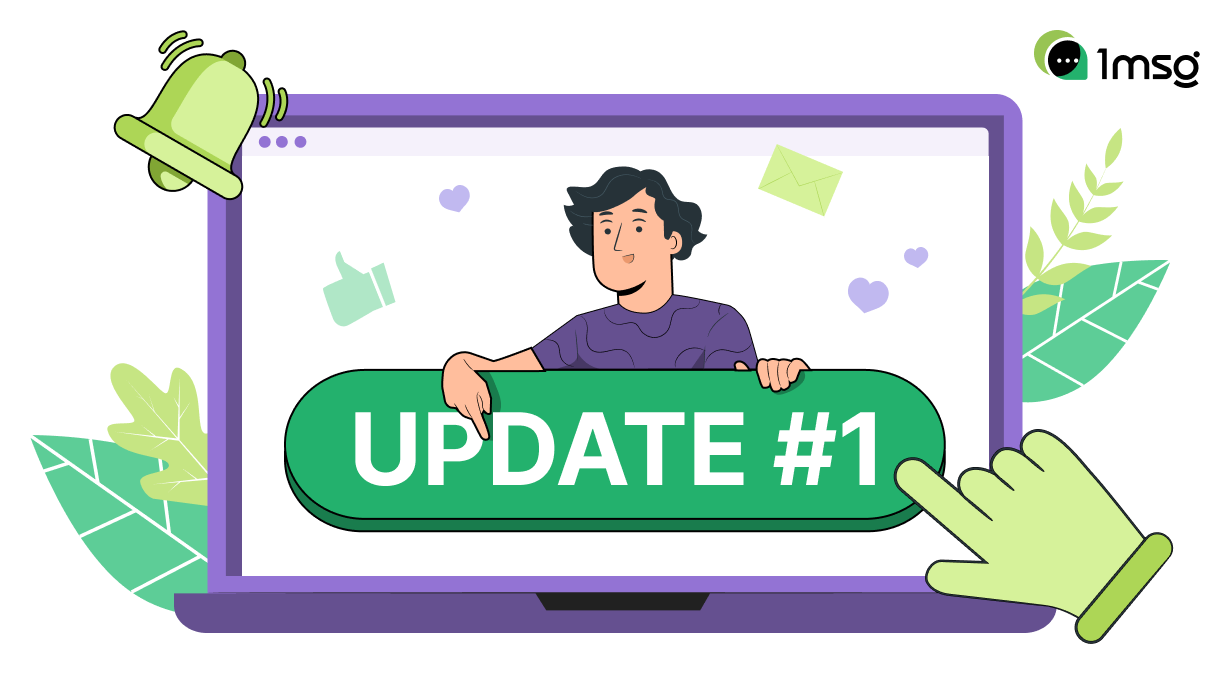Routing conversations in WhatsApp. How to assign chats and distribute conversations

In 1msg.io you have the ability to use 3 different chats to serve your WhatsApp Business API number:
- Mobile chat for easy access to your WhatsApp Business API number anywhere in the world using your phone.
- Chat in your personal 1msg.io account, which reflects the functionality of the mobile app.
- Advanced Web Chat with various routing and automation features for WhatsApp.

In this article, we will discuss in detail the possibilities of routing and how it is useful for you when working with WhatsApp Business API.
What is chat routing and what is it for?
Chat routing, in essence, refers to the process of automatically directing incoming messages to the appropriate department or individual within a business setup. This feature streamlines the communication process, ensuring that queries and requests are handled by the most qualified person or system within the organization.
Chat routing's benefits in the WhatsApp Business API are manifold, making it an indispensable feature for businesses.
- Improved Customer Experience: By ensuring that each message is directed to the right agent or department, chat routing ensures customers receive a swift, accurate response to their inquiries. This speed and precision significantly enhance the overall customer experience.
- Increased Efficiency: Chat routing reduces the burden on customer service agents by minimizing the chances of misrouted queries. It ensures that the right agent handles the right request, leading to a more efficient use of resources and ultimately contributing to quicker issue resolution times.
- 24/7 Customer Support: Automated chat routing can be combined with AI chatbots to provide 24/7 customer support. During off-business hours, basic queries can be routed to chatbots, ensuring that customer requests are addressed at all times.
- Enhanced Scalability: As a business grows and the volume of customer interactions increases, managing communications can become challenging. Chat routing allows for smooth scalability, managing high volumes of messages seamlessly, ensuring that no customer query falls through the cracks.
- Better Analytics: Chat routing, by nature, generates data – which agent handled which kind of request, response times, resolution rates, and more. This data can be incredibly useful for understanding agent performance and identifying areas of improvement.
Assign the person responsible for the dialogs
When you work with a sales team and there are several specialists communicating with clients in chats, you just need to be able to assign and select persons responsible for the dialogs. Otherwise, the work will turn into chaos, everyone will take dialogs in a row, customers who have already contacted before will talk to new operators, everyone will have to spend their time figuring out the old problem, but the appointment of responsible persons can easily fix this problem.

Now all dialogs will come to this operator, your other operators will not be able to accidentally intercept the dialogs open to him, thereby in the work of your specialists will be more orderly and efficient.
Allocation of all dialogs to tabs
In web chat you can now assign people to be in charge of dialogs. Unassigned conversations can get lost. To prevent this, there are tabs with dialog statuses in the chat.
There are several of them in the chat: "My opens" - assigned to you or to operators. "Unassigned" - dialogs that are not responsible, "Resolved" - dialogs that the operator marks as resolved, if the client's question has been closed, and the tab for administrators "All opens", where you can see all the dialogs assigned to operators.

This way, all dialogs are distributed in tabs, your specialists will always be able to find the right dialog, none of them will be lost or missed due to inattention.
Automatic distribution of dialogs between operators
You can assign dialogs to operators, but assigning each one manually would take a lot of your time. Flexible automatic settings allow you to assign dialogs as you want.
For example: all new dialogs can be allocated randomly, by order, to online operators only, or to operators with fewer dialogs. All newly opened dialogs can also be automatically distributed to the operator who was the last to answer the client or, if offline, to the first available operator.

Notes in the chats
Several operators can communicate with the same client: in different shifts or during the same day. Operators spend time trying to figure out at what point the communication ended, and what the client now expects. Leave notes in chats, so that other operators know about the work done, take them into account in the new phase of communication and respond to the client in the most correct way.

Switching between messages and comments is available in the chat window. Customers will not see the comments, they are available only for operators and channel administrators.
Such capabilities can take your Support, Sales, and Marketing team to the next level of efficiency. Install Shared Team inbox Chat and impress your WhatsApp customers.

